Films from the country "pologne", sorted by revenue
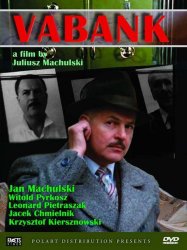
Vabank (1981)
, 1h48Directed by Julius Machulski
Origin Pologne
Genres Comedy, Comedy thriller, Crime
Themes Heist films, Gangster films, Escroquerie
Actors Jan Machulski, Leonard Pietraszak, Witold Pyrkosz, Krzysztof Kiersznowski, Ewa Szykulska, Henryk Bista
L'histoire se déroule dans Varsovie des années 1930.
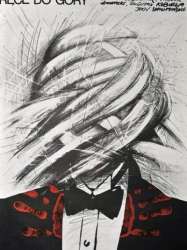
Hands Up! (1985)
, 1h30Directed by Jerzy Skolimowski
Origin Pologne
Genres Drama, Comedy
Actors Jerzy Skolimowski, Tadeusz Łomnicki, Bogumił Kobiela, Alan Bates, Jane Asher, David Essex
Dix ans après la fin de leurs études de médecine, cinq jeunes gens se retrouvent à bord d'un train de marchandises. Ils y évoquent leur passé commun, le temps où la Pologne était régentée par le stalinisme intransigeant : à cette époque, ils avaient été chargés d'accoler des panneaux de papier afin d'ériger un immense portrait de Staline pour le défilé du premier mai. Or sur l'affiche, le despote avait été affublé de deux paires d'yeux.

Man of Iron (1981)
, 2h20Directed by Andrzej Wajda
Origin Pologne
Genres Drama, Historical
Themes Films about the labor movement, Political films
Actors Jerzy Radziwiłowicz, Krystyna Janda, Bogusław Linda, Artur Barciś, Marian Opania, Andrzej Seweryn
The film is set in Gdansk in 1980. In Gdansk shipyard workers strike continues. Among them, an important role is played by activist Strike Committee, Maciek Tomczyk (played by Jerzy Radziwiłowicz). Radio journalist, editor Winkel (Marian Opania) is ordered by the deputy chairman of Radio Committee (Janusz Gajos) to achieve coverage compromising Tomczyk. Is sent to Gdansk, where a representative of the authorities Badecki (Franciszek Trzeciak) realizes the importance of his job.
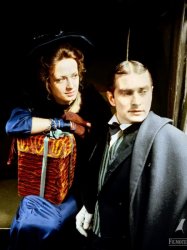
Fever (1981)
, 2h2Directed by Agnieszka Holland
Origin Pologne
Genres Drama, Historical
Actors Barbara Grabowska, Adam Ferency, Bogusław Linda, Olgierd Łukaszewicz, Krzysztof Kiersznowski, Zbigniew Zapasiewicz
Pendant la Révolution polonaise de 1905, de 1905 à 1907, les membres d'un groupe de socialistes polonais envisagent d'utiliser une bombe pour tuer le gouverneur général du tsar mais leur action est infructueuse.

Shivers (1981)
, 1h46Directed by Wojciech Marczewski
Origin Pologne
Genres Drama, Historical
Actors Marek Kondrat, Jerzy Bińczycki, Bogusław Linda, Marian Opania, Gosia Dobrowolska
Un garçon atteint la majorité sous un gouvernement socialiste oppressif et cruel et le voit déformer lentement mais sûrement sa famille, son école et même ses propres pensées.

Blind Chance (1987)
, 1h54Directed by Krzysztof Kieślowski
Origin Pologne
Genres Drama
Actors Bogusław Linda, Jerzy Stuhr, Tadeusz Łomnicki, Zbigniew Zapasiewicz, Adam Ferency, Zygmunt Hübner
Witek (Bogusław Linda), sitting on an airplane, for some reason screams "No!" A bleeding person is dragged across a hospital floor. As a child, Witek learns how to write. As an adolescent, Witek dates Czuszka. As an adult, Witek goes to medical school but 'loses' his calling after the death of his father. Witek decides to catch a train to Warsaw. There he crashes into a fellow drinking beer. Three different outcomes are shown, each depending on how Witek deals with the obstacles on his way to catching the train and whether or not he catches the train.

The Conductor (1980)
, 1h41Directed by Andrzej Wajda
Origin Pologne
Genres Drama, Musical
Themes Films about music and musicians, Films about classical music and musicians
Actors John Gielgud, Krystyna Janda, Andrzej Seweryn, Maria Seweryn, Janusz Gajos
Une violoniste d'un orchestre provincial polonais, dont le mari est le directeur de l'ensemble, en visite aux États-Unis, se lie avec le chef d'orchestre symphonique de renommée mondiale. Il s'avère qu'il était autrefois amoureux de la mère de la violoniste
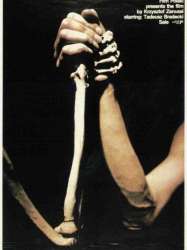
The Constant Factor (1980)
, 1h32Directed by Krzysztof Zanussi
Origin Pologne
Genres Drama
Actors Zofia Mrozowska, Małgorzata Zajączkowska, Witold Pyrkosz, Julius Machulski
Après son service militaire, un jeune homme vivant en Pologne, Witold, est amené par son travail à voyager. Épris d'absolu et cherchant à fuir la mesquinerie de son entourage, il se réfugie dans sa passion pour l'alpinisme malgré la mort de son père survenue en tentant l'ascension de l'Himalaya.
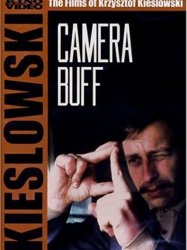
Camera Buff (1979)
, 1h57Directed by Krzysztof Kieślowski
Origin Pologne
Genres Drama, Comedy, Romance
Actors Jerzy Stuhr, Krzysztof Zanussi, Jerzy Nowak
The film is set in the late 1970s in Wielice, People's Republic of Poland. Factory worker Filip Mosz (Jerzy Stuhr) is a nervous new father and a doting husband when he begins filming his daughter's first days with a newly acquired 8mm movie camera. He believes, as he tells his wife, that he now has everything he ever wanted since his youth as an orphan, but when the local Communist Party boss asks him to film an upcoming jubilee celebration of his plant, his fascination with the possibilities of film begins to transform his life.

Without Anesthesia (1978)
, 2h11Directed by Andrzej Wajda
Origin Pologne
Genres Drama
Actors Zbigniew Zapasiewicz, Ewa Dałkowska, Andrzej Seweryn, Krystyna Janda, Kazimierz Kaczor, Jerzy Stuhr
Un célèbre journaliste polonais présente un problème pour les pouvoirs en place lorsqu'il affiche ses compétences et ses connaissances politiques dans une émission de télévision présentant des questions et réponses lors d'une conférence mondiale par un panel de journalistes. Ses ennemis lui enlèvent ses privilèges quand il est absent. Le choc d'être «indésirable» correspond à une déception plus profonde dans sa vie privée: sa femme a une liaison avec un jeune rival jaloux, et après 15 ans de mariage et deux filles veux divorcer.
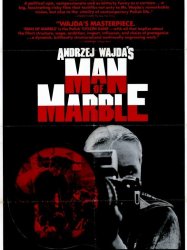
Man of Marble (1977)
, 2h40Directed by Andrzej Wajda
Origin Pologne
Genres Drama, Historical
Themes Political films
Actors Krystyna Janda, Jerzy Radziwiłowicz, Tadeusz Łomnicki, Krystyna Zachwatowicz-Wajda, Kazimierz Kaczor, Ewa Ziętek
Agnieszka, is a young filmmaker who is making her film thesis on Mateusz Birkut, a bricklayer elevated as a hero in a stunt to increase construction efficiency and brick quotas. However, who has since had a fall from grace of the Party and other officials. His current whereabouts seem to have been lost two decades later, and she attempts to piece together the details of his downfall. Agnieszka has difficulty making the film from archival sources and museum collections, but little work remains outside of official propaganda.
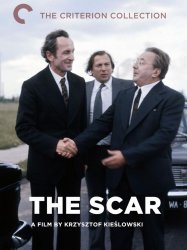
The Scar (1976)
, 1h52Directed by Krzysztof Kieślowski
Origin Pologne
Genres Drama
Actors Franciszek Pieczka, Mariusz Dmochowski, Jerzy Stuhr, Agnieszka Holland, Stanisław Michalski, Bohdan Ejmont
After discussions and dishonest negotiations, a decision is made as to where a large new chemical factory is to be built. Stefan Bednarz (Franciszek Pieczka), an honest Party man, is put in charge of the construction. Bednarz used to live in the small town where the factory is to be built, and his wife used to be a Party activist there. Although he has unpleasant memories of the town, Bednarz sets out to build a place where people will be able to live well and work well. His intentions and convictions, however, conflict with those of the townspeople who are mainly concerned with their short-term needs. Disillusioned, Bednarz gives up his position.

Jarosław Dąbrowski (1976)
, 3h1Origin Pologne
Genres Biography
Actors Zygmunt Malanowicz, Viktor Avdyushko, Aleksandr Kaliaguine, Józef Nowak, Martine Ferrière, François Maistre

A Woman's Decision (1975)
, 1h38Directed by Krzysztof Zanussi
Origin Pologne
Genres Drama
Actors Maja Komorowska, Piotr Fronczewski, Zofia Mrozowska, Mariusz Dmochowski, Lucyna Winnicka, Danuta Rinn
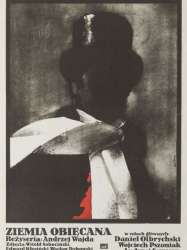
The Promised Land (1975)
, 2h59Directed by Andrzej Wajda
Origin Pologne
Genres Drama, Historical
Actors Daniel Olbrychski, Wojciech Pszoniak, Andrzej Seweryn, Anna Nehrebecka, Kalina Jędrusik, Franciszek Pieczka
Karol Borowiecki (Daniel Olbrychski), a young Polish nobleman, is the managing engineer at the Bucholz textile factory. He is ruthless in his career pursuits and unconcerned with the long tradition of his, now financially declined, family. He plans to set up his own factory with the help of his friends Max Baum (Andrzej Seweryn), a German and heir to an old handloom factory, and Moritz Welt (Wojciech Pszoniak), an independent Jewish businessman. Borowiecki's affair with Lucy Zucker (Kalina Jędrusik), wife of another textile magnate, gives him advance notice of a change in cotton tariffs and helps Welt to make a killing on the Hamburg futures market. But more money has to be found, so all three characters cast aside their pride to raise the necessary capital.
 Connection
Connection